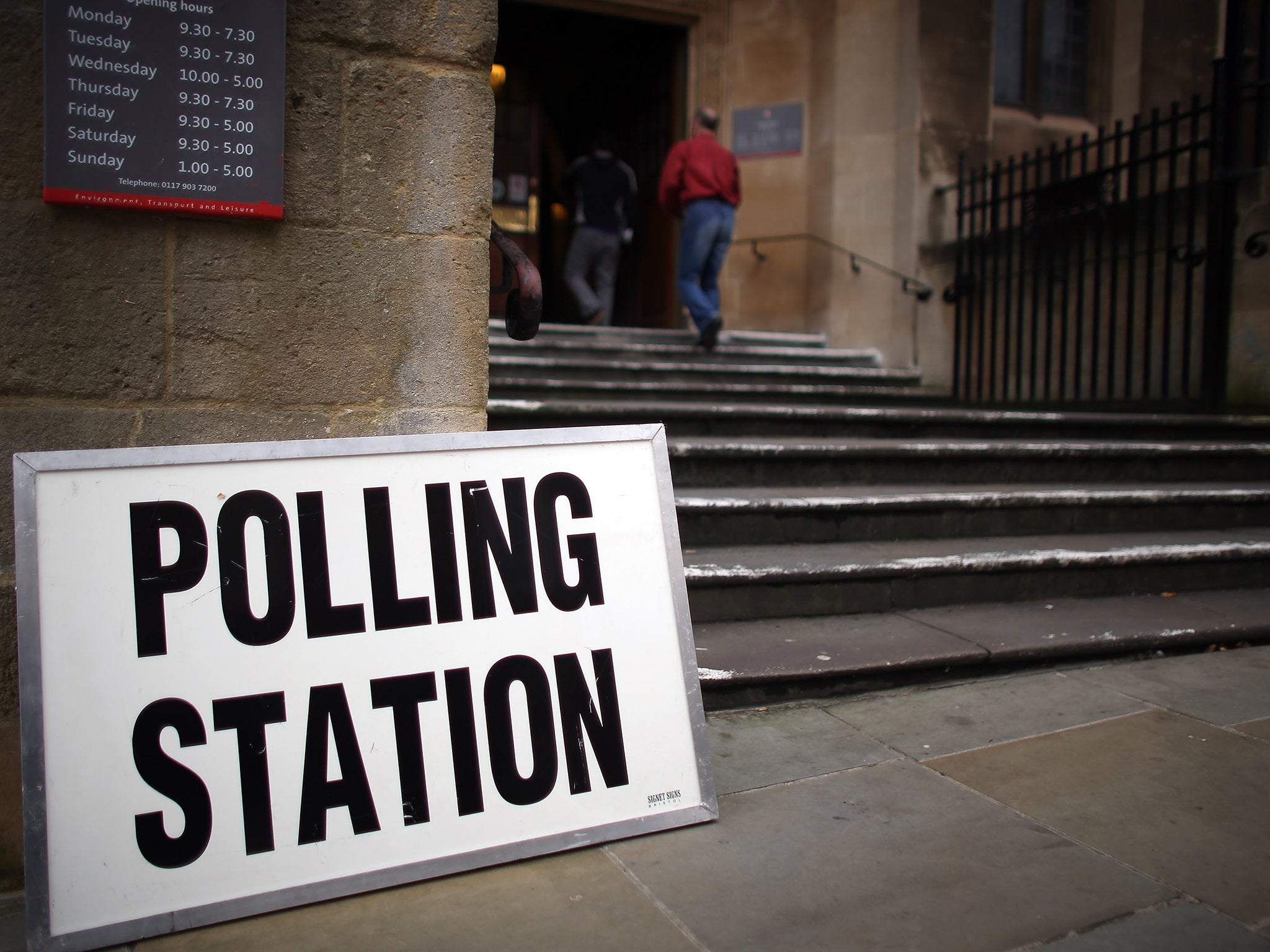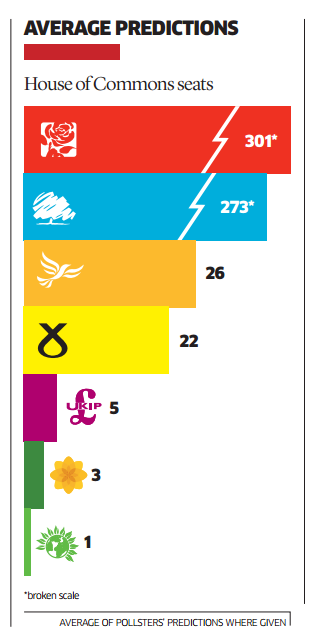General election 2015: 10 expert predictions on who will win the general election

Your support helps us to tell the story
From reproductive rights to climate change to Big Tech, The Independent is on the ground when the story is developing. Whether it's investigating the financials of Elon Musk's pro-Trump PAC or producing our latest documentary, 'The A Word', which shines a light on the American women fighting for reproductive rights, we know how important it is to parse out the facts from the messaging.
At such a critical moment in US history, we need reporters on the ground. Your donation allows us to keep sending journalists to speak to both sides of the story.
The Independent is trusted by Americans across the entire political spectrum. And unlike many other quality news outlets, we choose not to lock Americans out of our reporting and analysis with paywalls. We believe quality journalism should be available to everyone, paid for by those who can afford it.
Your support makes all the difference.Andrew Hawkins
ComRes
Just as the polls in 2010 pointed to no overall majority for any party, the overwhelming evidence points to Labour either being the largest party or getting a small majority, probably below 20. The Lib Dems and SNP should each win between 25 and 35 seats, with single-figure wins for both Ukip and the Greens.
Joe Twyman
YouGov
I predict it will be close. I predict a few tremors, though earthquakes are unlikely. I predict the eventual winner may not be the direct result of public opinion, but instead the outcome of political negotiations. It's too early to predict numbers given all the uncertainties surrounding (among other things) Ukip, the SNP and the Lib Dems. It is possible that it will be close between Conservative and Labour in terms of both votes and seats. The Lib Dems might retain 20-30 seats and the balance of power, despite small gains for the SNP, and at most half a dozen Ukip seats.
Gun to my head? Labour minority government.
Ben Page
Ipsos MORI
A mug's game for this election months away, but my predictions in order of likelihood: most likely a hung parliament or coalition of some kind, closely followed by either a small Labour majority or an equally small Conservative majority. Given how close the parties are, the unknown performance of Ukip in key marginals, the effect of incumbency on Lib Dem losses, the final size of SNP surge and so on, to be more precise is simply foolish!
Professor Tetlock, who found that forecasts by experts were only slightly better than throwing dice, weighs heavily upon me!
Rick Nye
Populus
I can see a hung parliament, where Labour is the largest party in terms of seats – though not necessarily in terms of votes, with the Lib Dems having 30 seats or fewer, the SNP having up to 20 seats and Ukip having no more than five seats.
In short, it's going to get messy and stay messy for some time to come.
Nick Moon
GfK
I can't recall there ever being an election more difficult to predict than this one. I'm confident no party will have an overall majority, with the Tories probably the largest party but no single partner for a viable coalition, with the Lib Dems on 25 seats, the SNP 20, Ukip three, and the Greens one.

Damian Lyons Lowe
Survation
The Conservative party's quest for an overall majority in 2015 has been stymied on four fronts: the Lib Dem blocking of boundary changes; the rise of UKIP; the Conservatives' lack of sufficient progress in Lib Dem seats; and the Conservatives’ relative underperformance in key Lab-Con marginals.
These make a Conservative majority highly unlikely in my view and would have resulted in a workable Labour majority were it not for the wild-card rise of the SNP in Scotland. In such a febrile environment after the independence referendum, uniform national swing is useless for this purpose but would, using Survation's December Scottish poll, predict almost complete wipeout by the SNP in Scotland of the traditional Westminster parties and result in 40+ seat gains – mostly at Labour’s expense.
How Lib Dems and Labour incumbent Scottish MPs respond to the nationalist challenge will be key to the post election negotiations but my own current predictions if forced to guess as regards seats are: Labour largest party by 40-50 over the Conservatives, no overall majority; Conservatives 235-255 seats; Lib Dems 20-30 seats; SNP 30-40 seats – maybe held back from their potential support level by opposition incumbency and tactical voting by pro-unionist voters; Ukip 5-10 wins from the Conservatives (including Rochester and Clacton) and potentially a single Labour seat surprise.
Michelle Harrison
TNS
The battleground over the next three months is at the kitchen table – the difference between what the statistics tell us about the economy, the experience that Britons are having of managing their household budgets, and where – and if – they believe politics can make a difference. In this regard, the disconnect with the major political parties is more interesting than the horse race.
James Endersby
Opinium Research
Our first poll for 2015 shows Labour one point ahead, but this poll and those from other pollsters are snapshots four months out from an election, not predictions. It would be extremely unwise for a pollster to make a firm prediction with four months to go before polling day.
Since the Scottish referendum we've seen the SNP shoot up and the Greens climb to parity with the Lib Dems which means things have become very complex. Based on polls at the moment, Opinium’s estimate on polling day would be the Conservatives slightly ahead on vote share but Labour slightly ahead on seats. The SNP would be vying with the Lib Dems for third place in seats, with Ukip coming just ahead of the Lib Dems in vote share.
Seat projections tend to assume a uniform national swing when in fact we have hundreds of unique local contests and stark differences between regions. These numbers are based on uniform swing with tweaks to the Green and Ukip numbers based on local information: Labour 320 seats, Conservatives 271, Lib Dems 20, SNP 16, Plaid Cymru 3, Greens 2, UKIP 4. A hung parliament with Labour potentially closer to a majority coalition than the Conservatives.
Martin Boon
ICM
I've not recovered from the Scottish referendum campaign yet, and here we go with another wildcard strewn nail-biter. For me, Labour on 30 per cent will only fractionally nudge past their woeful 2010 showing – behind the Tories on 33 per cent – but enough to secure more seats (290 for Labour, 280 for the Tories) on boundary wackiness. The Lib Dems will secure 14 per cent of the vote and 35 seats; Ukip will also get 14 per cent, but that only gets them a couple of seats. As for Scotland, I'm bewildered, but as you asked I'll say 30 seats for the SNP, which wipes out a breathing-space victory in seats for Labour.
Lord Ashcroft
Lord Ashcroft Polls
Declined to take part. His spokeswoman said: "As he has said many times, his polls are snapshots not predictions."
Health warning When The Independent on Sunday carried out a similar exercise in April 2010, at the start of that year's election campaign, eight out of eight pollsters predicted a Conservative overall majority.
Join our commenting forum
Join thought-provoking conversations, follow other Independent readers and see their replies
Comments